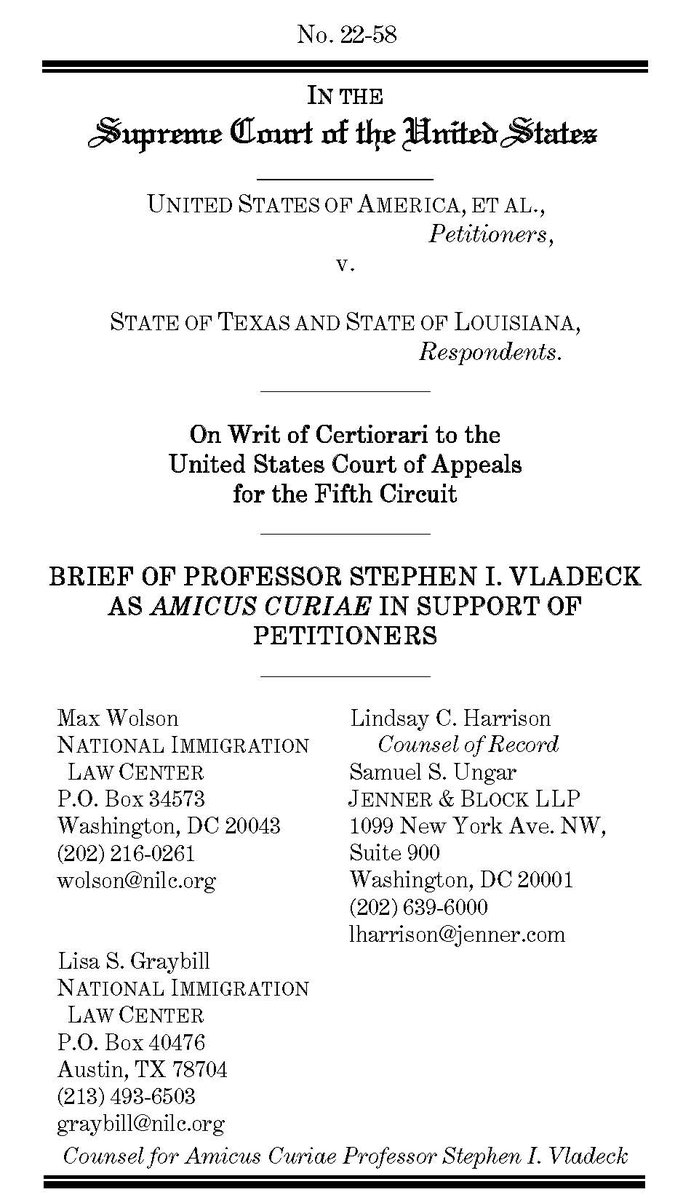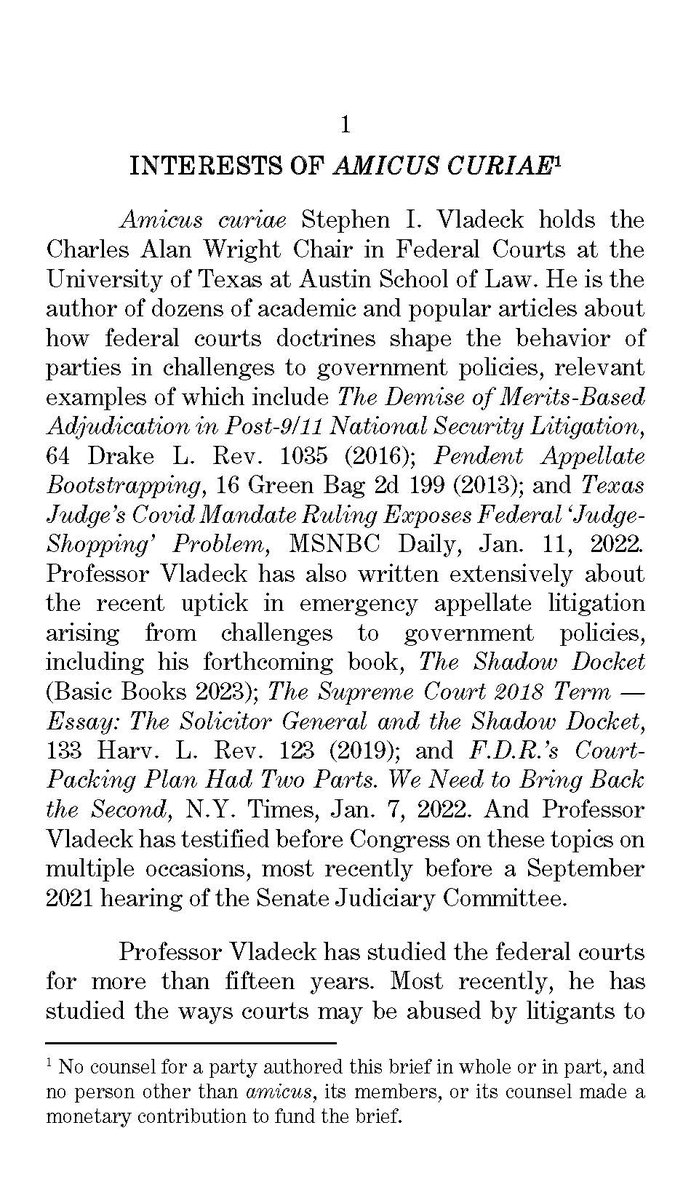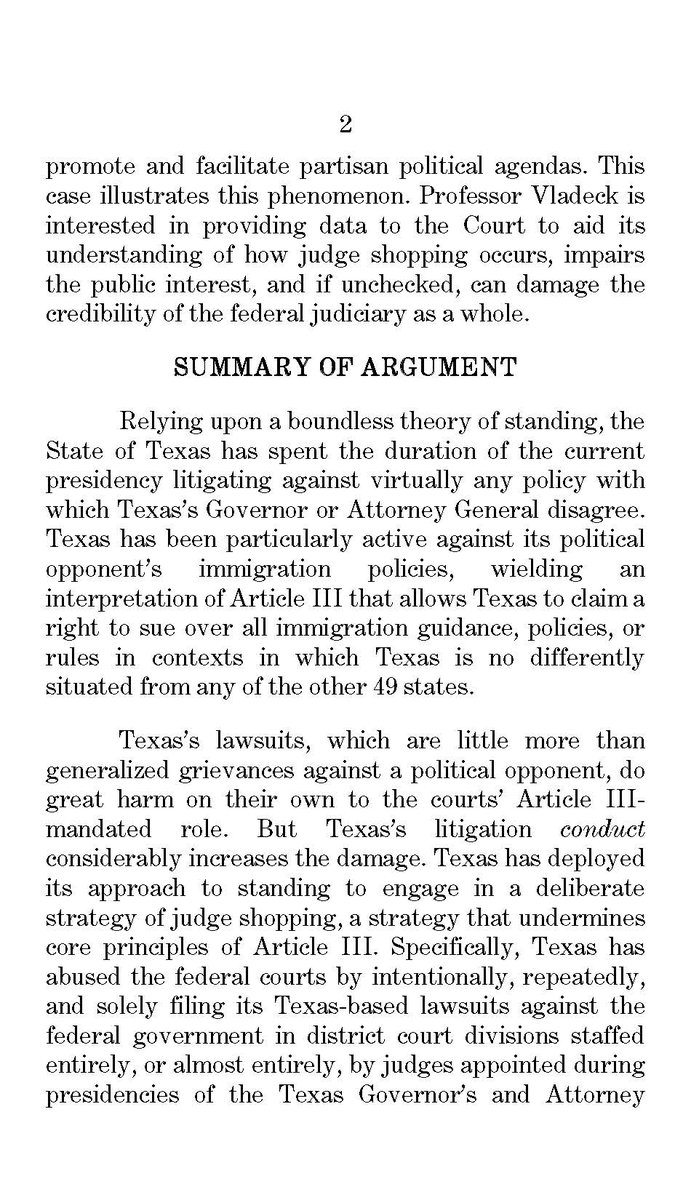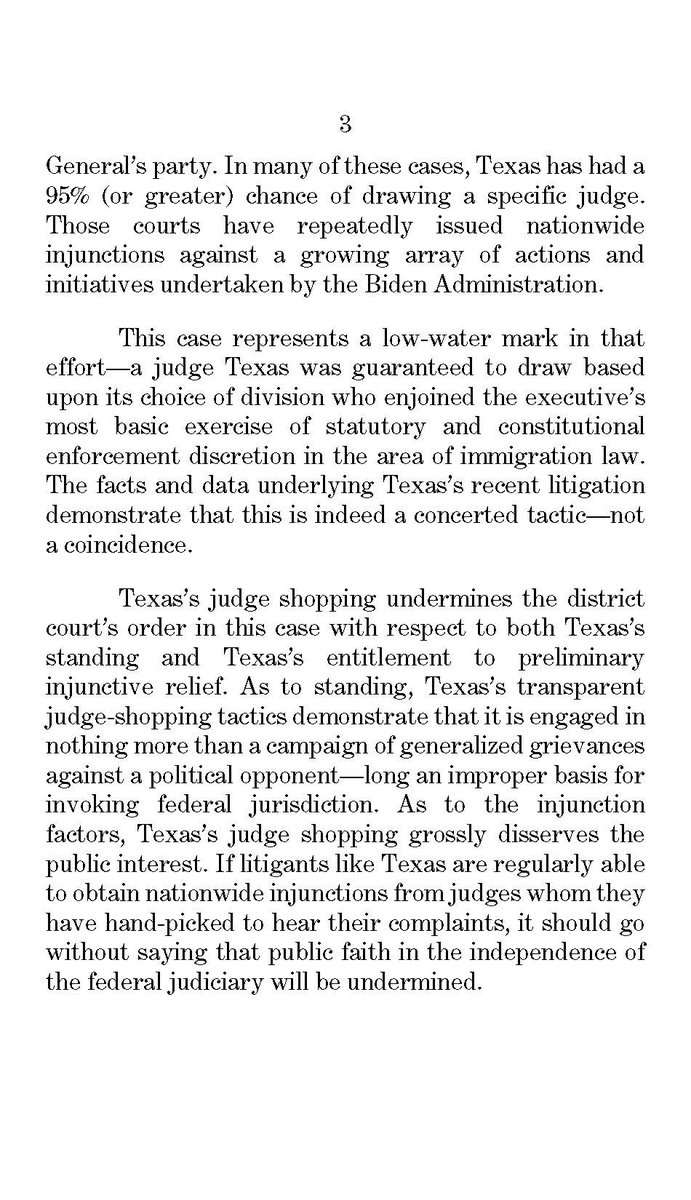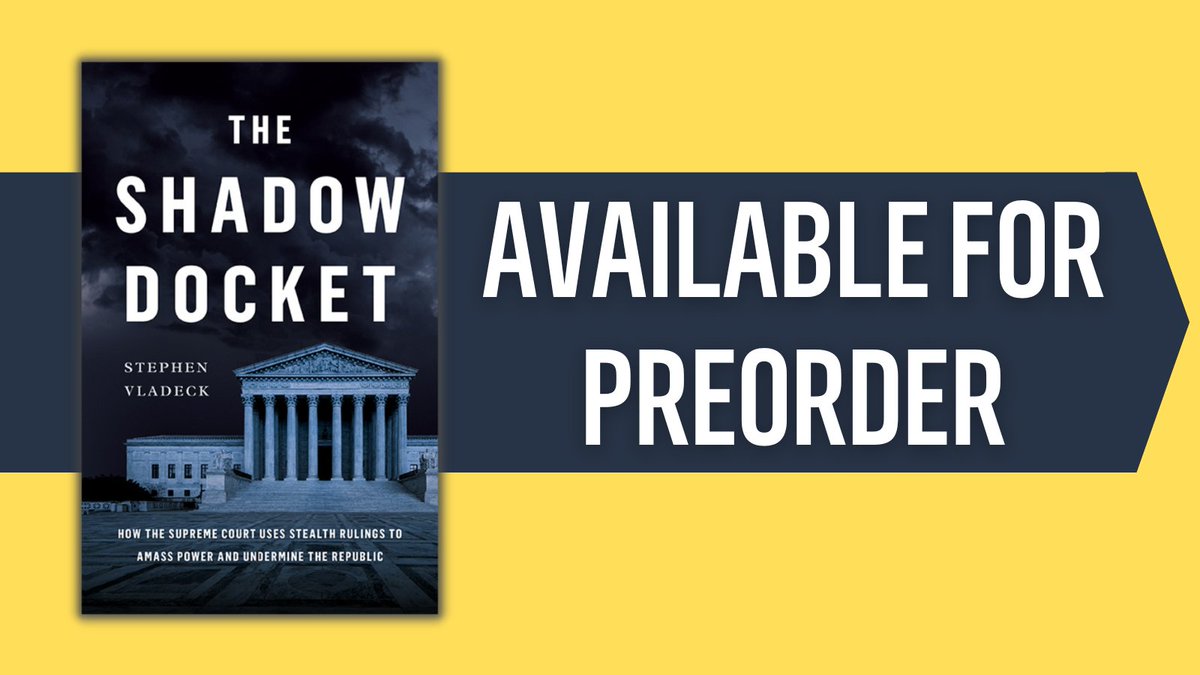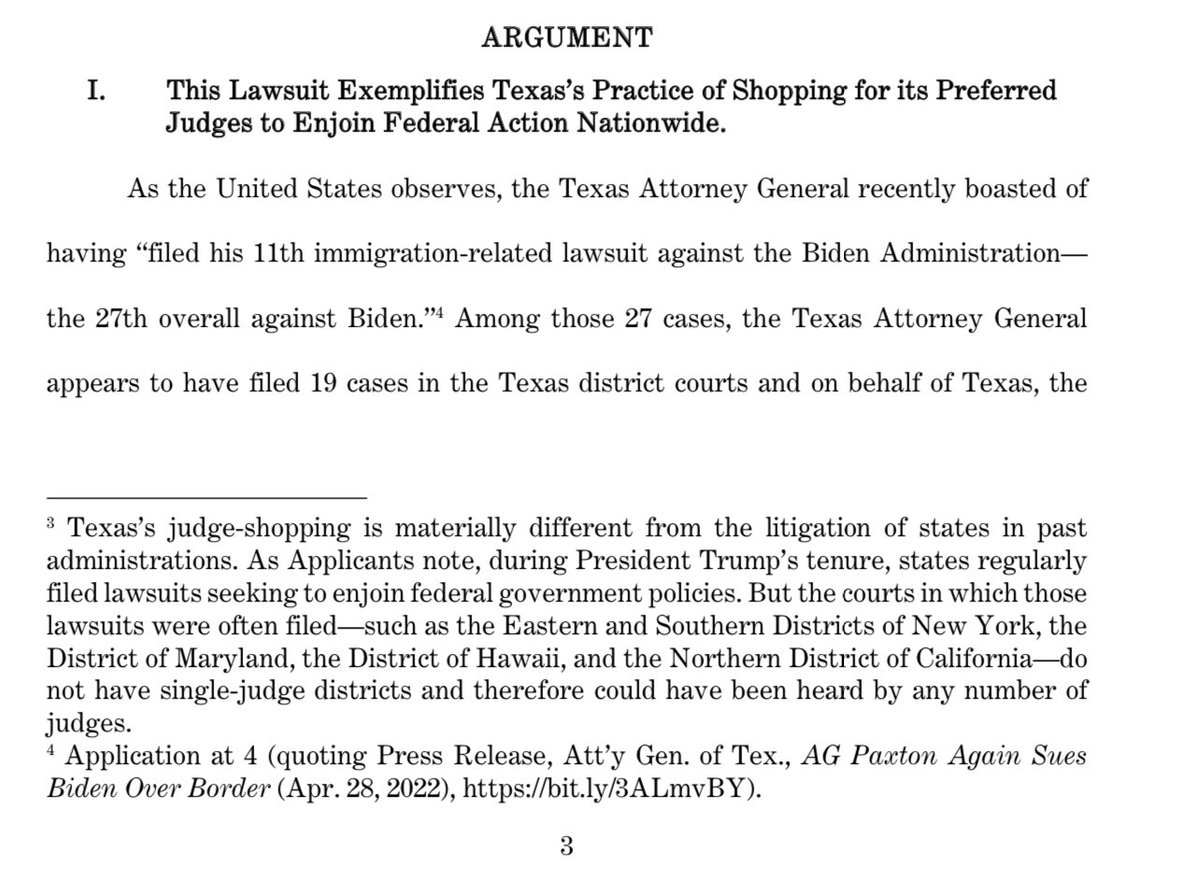
1. Having fully digested Trump's emergency application to #SCOTUS, here's a quick #thread on what it's really asking for, why it's not *entirely* laughable, and why I nevertheless think that it's both (1) doomed to fail; and (2) unlikely to accomplish much even if it succeeds:
2. In short, Trump is asking #SCOTUS to vacate *part* of the Eleventh Circuit's stay in the Mar-a-Lago case. In essence, he's arguing that the 100+ classified documents at issue *should* be part of the pile before Judge Dearie, and that under the 11th Cir.'s stay, they're not.
3. Critically, he's *not* arguing that the 11th Cir. was wrong to stay that part of Cannon's order that *enjoined* DOJ from using those documents. So the relief he's seeking wouldn't stop DOJ from continuing to do whatever it's doing; it would just *also* add to the Dearie mess.
4. To get there, the brief tries to thread a very fine needle, arguing that, although the *injunction* was properly before the Eleventh Circuit, the rest of the order was not, so Dearie shouldn't be affected. This gets into the messy doctrine of "pendent appellate jurisdiction."
5. Short course on pendent jurisdiction: At pre-final ("interlocutory") stages of litigation, appeals are generally disfavored, limited to specific issues (rather than the whole case). The question is whether the rest of Cannon's order is intertwined with the injunction (or not).
6. Personally, I think DOJ has a very good argument that the issues *are* pendent, and so the Eleventh Circuit had the ability to do everything that it did in staying Judge Cannon's order. If that's correct, then Trump's argument for emergency relief fails on the "merits."
7. But emergency relief is (supposed to be) about *more* than the merits. To vacate a lower-court stay, Trump also has to show that the stay is causing him irreparable harm (harm that justifies #SCOTUS's emergency intervention, rather than waiting for a later plenary appeal).
8. And this is what's most conspicuously absent from his application: Any argument about how the stay, by itself, is harming Trump in a way that can't be ameliorated later. Without meeting that criteria, Trump can't make out the *procedural* case for the relief he's seeking.
9. To be sure, the Supreme Court in recent years hasn't always been ... consistent ... in its analysis of irreparable harm in ruling on emergency applications. But here, it provides an easy and obvious off-ramp to dodge what is a non-frivolous dispute over pendent jurisdiction.
10. So my best guess is that the Court will deny the application, although some Justices may write separately.
Two last points on what to take away from this filing:
First, what Trump is asking for is *very* modest. Even *if* he wins, it won't stop DOJ from doing *anything.*
Two last points on what to take away from this filing:
First, what Trump is asking for is *very* modest. Even *if* he wins, it won't stop DOJ from doing *anything.*
11. Second, this is what good lawyers who are stuck do to appease bad clients: The jurisdictional argument is narrow, technical, and non-frivolous. It's a way of filing *something* in the Supreme Court without going all the way to crazytown and/or acting unethically.
12. That point reinforces the big takeaway: This is a very specific and narrow request by Trump the merits of which turn on a technical jurisdictional question, but which runs into fatal procedural obstacles long before that. It's not laughable, but only because it's small.
/end
/end
Coda: Yes, this filing goes to Justice Thomas as Circuit Justice. But for as cynical as I know many people have become, I don't see a universe in which he grants it by himself rather than allowing the full Court to resolve it. And even if he does, the full Court can overrule him.
• • •
Missing some Tweet in this thread? You can try to
force a refresh


